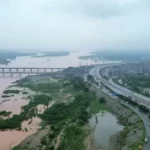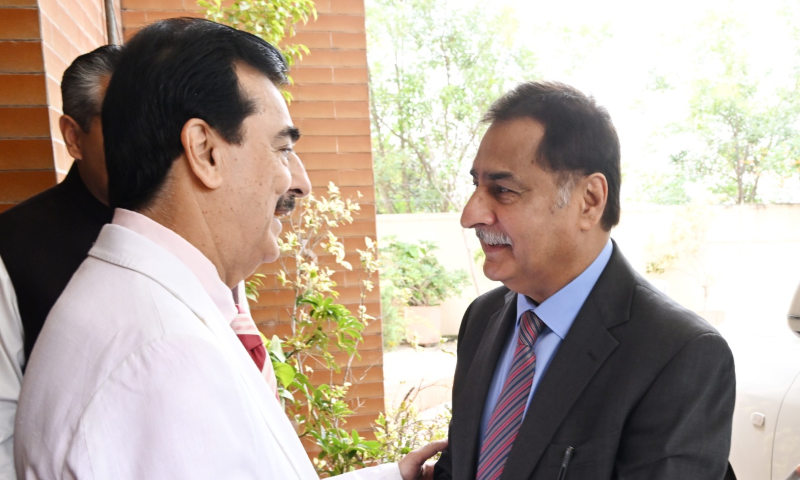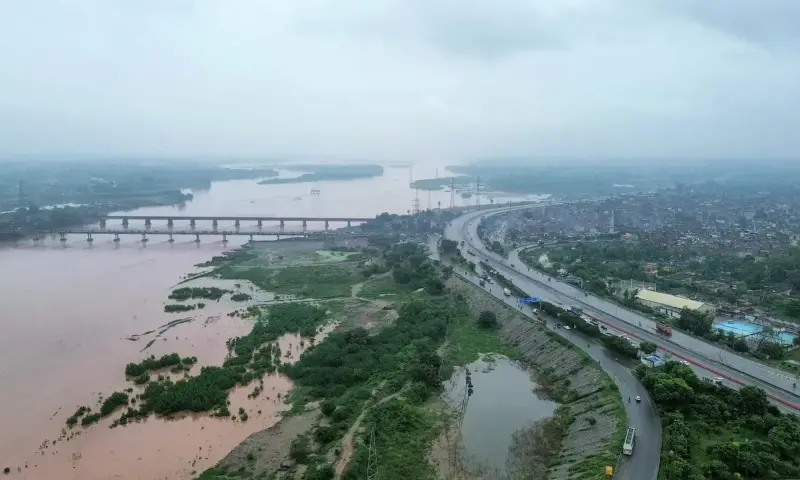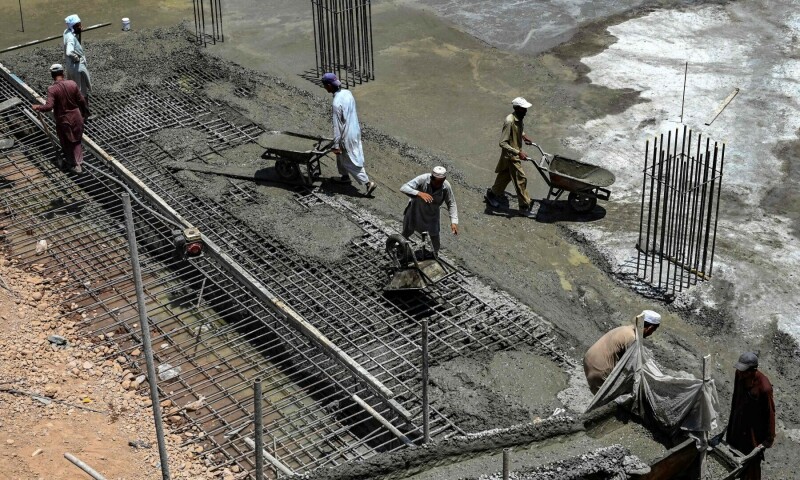The National Disaster Authority said Wednesday that sudden floods and heavy rains throughout the country have killed 64 people and wounded 117 in a week.
The highest toll was in Khyber Pakhtunkhwa with 23 dead, including 10 children, the authority said.
Fourteen of the victims were swept at a sudden flood in the Swat valley last week.
Sudden floods and houses collapsed under heavy rains killed another 21 in Punjab, including 11 children, the authority said. In Sindh, 15 people were killed, while five people died in Baluchistan.
Separately, the Department of Meteorology of Pakistan (PMD) predicted a significant intensification of the monsoon activity throughout the country from the night of July 5, with generalized rain, thunderstorms and the possibility of sudden floods and urban floods in several regions.
According to the weather office, the currents of the wet monsoon penetrated continuously into the country and would probably be strengthened during the weekend.
It was also expected that a western wave will approach the upper parts of the country on July 6, improving the rain even more.
According to the most prominent aspects of the regional forecast, wind of rain/thunderstorms with a scattered and very heavy rain from July 5 to 10 in multiple areas, including Muzampharabad, Neelum Valley, Rawalakot, Swat, Dir, Malakand, Kohistan, Chitral and others.
The areas of Gilgit-Baltistan, including Skardu, Hunza, Gilgit and Astore, may also experience similar conditions from July 6 to 10.
In Punjab and Islamabad, generalized rains and thunderstorms with large falls from July 5 to 10 in Islamabad, Rawalpindi, Lahore, Sialkot, Gujranwala, Faisalabad and several other districts are expected. The regions of southern Punjab, including fine, Bahawalpur and Dera Ghazi Khan, will receive rain between July 6 and 8.
On Baluchistan, the PMD predicts that rain storms are probably in Lorealai, Khuzdar and Lasbella from July 3 to 4 and again from July 6 to 8.
The regions of Sindh, such as Karachi, Hyderabad, Tharparkar and Sukkur, can experience moderate rainfall during July 3 to 4, with possibilities of heavy isolated falls in the southeast parts.
As per possible impacts and public advisory, heavy to very heavy rains may generate flash floods in local nullahs and streams of murree, galliyat, manshera, kohistan, abbottabad, buner, chitral, dir, swat, shangla, nowshera, swabi, ardan, islamabad/rawalpindi, rawalpindi, Hill Torrents of Dera Ghazi Khan, Northeast Punjab, Azad Jammu and Kashmir and parts of Baluchistan of the night from July 5 to 8.
Heavy downpours can cause urban floods in low areas of Islamabad, Rawalpindi, Gujranwala, Lahore, Sialkot, Sargodha, Faisalabad, Nowshera and Peshawar from July 6 to 8.
Earth landslides and landslides can lead to road closures in vulnerable mountainous areas of KP, Murree, Galliyat, Ajk and GB during the wet spell.
Heavy rains, strong winds and rays can damage weak structures, such as roofs and walls of mud houses, electric posts, billboards, vehicles and solar panels during the forecast period.
The PMD advised farmers to administer their agricultural activities taking into account the weather forecast.
The public, travelers and tourists who avoid unnecessary exposure in vulnerable areas and remain updated on weather developments to avoid adverse situations were strongly advised.
All authorities also received instructions to remain on maximum alert and take precautionary measures to mitigate any potential risk.
In May, at least 32 people died in severe storms, since the country experienced several extreme climatic events in spring, including strong storms.
Pakistan is one of the most vulnerable countries in the world for the effects of climate change and its 255 million residents face extreme climatic events with a growing frequency.
In 2022, the monsoon floods submerged a third of the country and killed 1,700 people.








